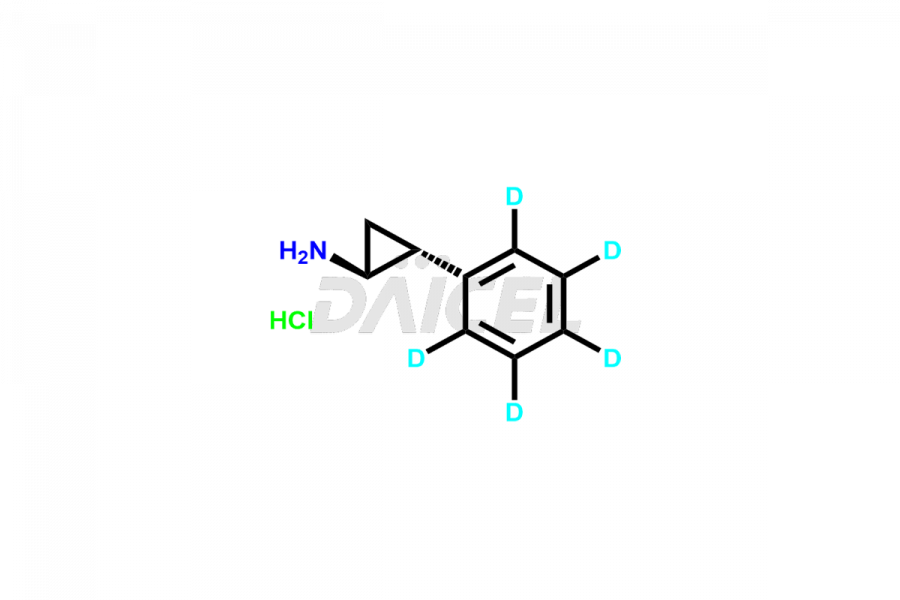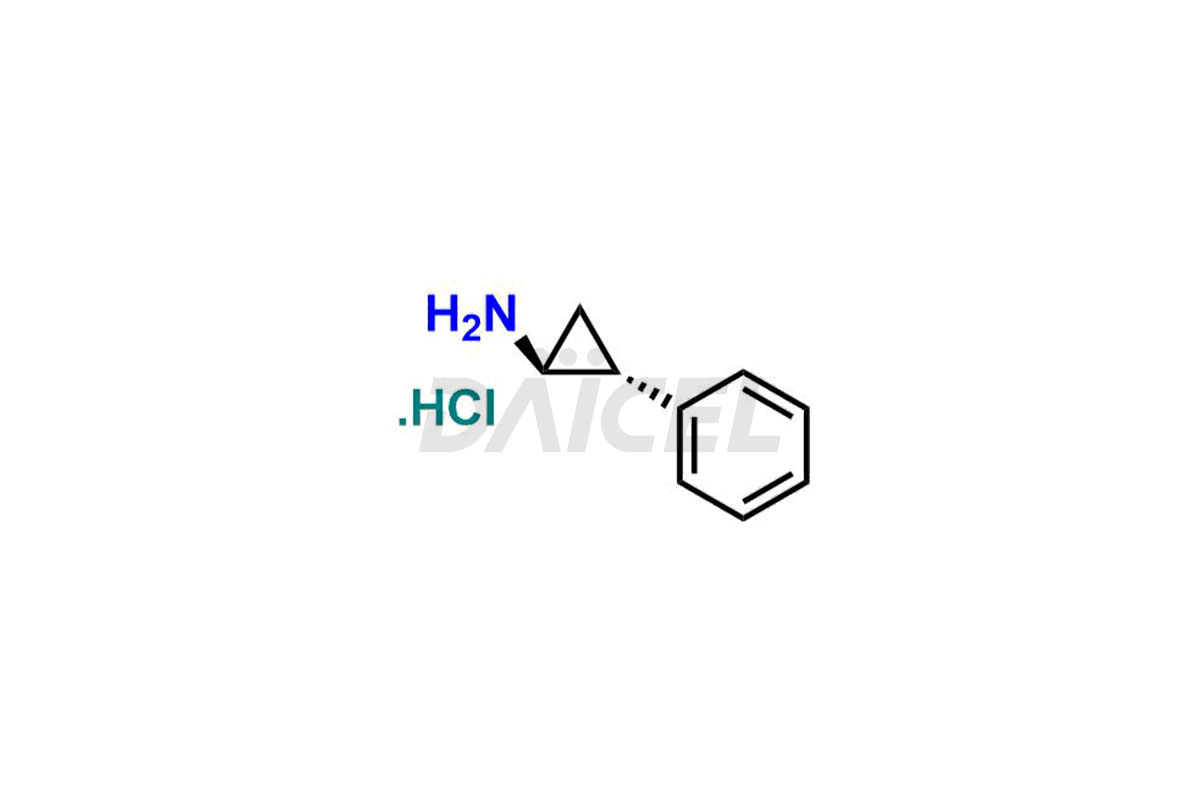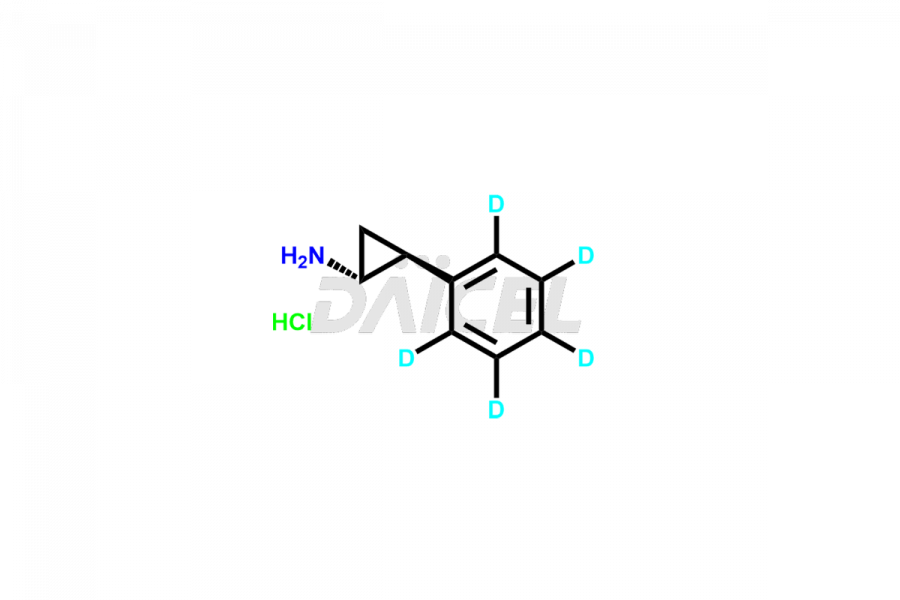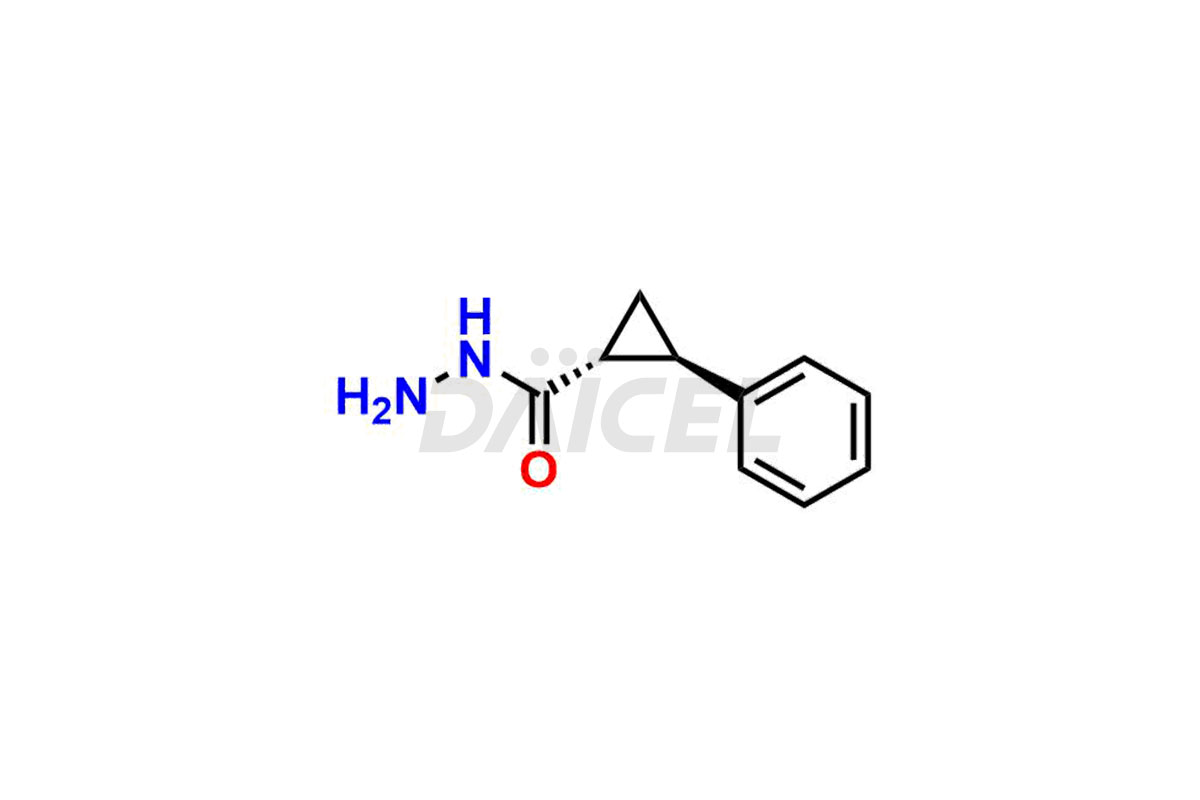Tranylcypromine
General Information
Tranylcypromine Impurities and Tranylcypromine
Daicel Pharma is a reliable source for synthesizing high-quality Tranylcypromine impurity standards like Cis-Hydrazide, S (-) Enantiomer of Tranylcypromine, Trans-Hydrazide, R (+) Enantiomer of Tranylcypromine and many more. These impurities aid in evaluating the active pharmaceutical ingredient, Tranylcypromine quality, stability, and safety. Daicel Pharma also provides a custom synthesis of Tranylcypromine impurities that can be shipped anywhere worldwide to meet clients’ requirements.
Tranylcypromine [CAS: 155-09-9] is an antidepressant medication that belongs to the class of nonhydrazine monoamine oxidase inhibitors (MAO inhibitors) that treats severe depression.
Tranylcypromine: Use and Commercial Availability
Tranylcypromine is used to treat depressive disorder without melancholia. The medication is to treat resistant depression, resistant social anxiety disorder, resistant panic disorder, and atypical depression. Hyperphagia, hypersomnia, rejection sensitivity, and leaden paralysis are atypical depression.
Tranylcypromine is available under brand names such as Parnate, containing the active ingredient, Tranylcypromine.
Tranylcypromine Structure and Mechanism of Action 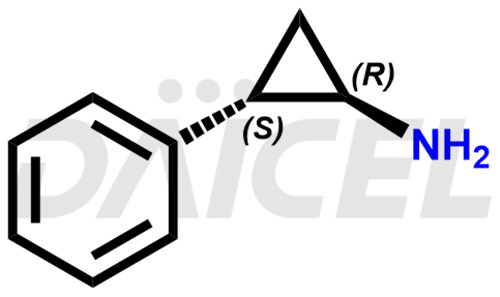
The chemical name of Tranylcypromine is rel-(1R,2S)-2-Phenylcyclopropanamine. Its chemical formula is C9H11N, and its molecular weight is approximately 133.19 g/mol.
Tranylcypromine irreversibly inhibits monoamine oxidase (MAO)n and eases depression symptoms.
Tranylcypromine Impurities and Synthesis
Tranylcypromine’s preparation1 process can develop impurities, which could diminish its effectiveness. They may come from various raw materials, intermediates, and chemicals used in synthesizing Tranylcypromine, among other sources. It is necessary to manage and monitor these impurities closely to ensure the drug’s efficacy and safety.
Daicel offers a Certificate of Analysis (CoA) from a cGMP-compliant analytical facility for Tranylcypromine impurity standards such as Cis-Hydrazide, S (-) Enantiomer of Tranylcypromine, Trans-Hydrazide, R (+) Enantiomer of Tranylcypromine and many more. The CoA includes complete characterization data, such as 1H NMR, 13C NMR, IR, MASS, and HPLC purity2. We also provide 13C-DEPT on request. Upon delivery, we give a complete characterization report. Daicel has the technology and expertise to prepare any unknown Tranylcypromine impurity or degradation product. We also provide labeled compounds to quantify the efficacy of generic Tranylcypromine. Daicel offers highly pure R-Tranylcypromine-D5 Hydrochloride and S-Tranylcypromine-D5 Hydrochloride, deuterium-labeled impurities of Tranylcypromine for bioanalytical research and BA/BE studies.
References
FAQ's
References
- Rajadhyaksha, Vithal Jagannath, Method of synthesis of trans-2-phenylcyclopropylamine, Nelson Research and Development Co., United States, US4016204A, April 5, 1977
- Baselt, Randall C.; Stewart, Constance B.; Shaskan, Edward, Determination of serum and urine concentrations of tranylcypromine by electron-capture gas-liquid chromatography, Journal of Analytical Toxicology, Volume: 1, Issue: 5, Pages: 215-17, 1977
Frequently Asked Questions
How can impurity profiling contribute to improving Tranylcypromine preparation processes?
Impurity profiling plays a vital role in enhancing Tranylcypromine preparation processes as it aids in the identification of the root causes of impurity formation. It minimizes impurities and enhances the overall quality of the Tranylcypromine product.
What are the challenges associated with analyzing Tranylcypromine impurities?
The analysis of impurities in Tranylcypromine presents several challenges, including the need for susceptible analytical methods and the potential variability in impurity levels across different batches.
Are they any distinctions between process-related and product-related Tranylcypromine impurities?
Process-related impurities in Tranylcypromine are generated during preparation, while product-related contaminants occur due to degradation during the storage or handling of the drug product.
What are the temperature conditions required to store Tranylcypromine Impurities?
Tranylcypromine Impurities should be stored at a controlled room temperature between 2-8°C or as indicated on the Certificate of Analysis (CoA).
Note: Products protected by valid patents by a manufacturer are not offered for sale in countries having patent protection. The sale of such products constitutes a patent infringement, and its liability is at the buyer's risk.


